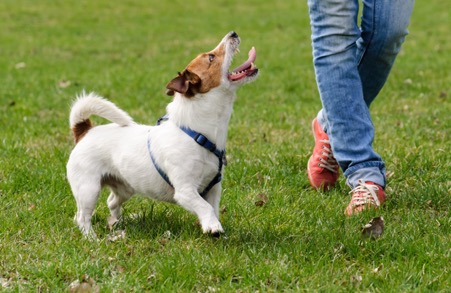What is the first sign of heartworms in dogs?

Most dog owners are fairly familiar with many of the different illnesses and diseases that can potentially affect their canine companion during their lifetime, and take the appropriate steps to help keep them healthy and happy.
Even when opting into protective treatment for your dog, it is still important to understand the symptoms that accompany conditions such as heartworm. In an ideal world, the preventative treatment that we give to our pets will be 100% effective every time but unfortunately a small percentage of pets who are believed to be adequately protected from heartworms will still go on to suffer from the condition. There can be several different reasons for this. Some of the most common reasons why a heartworm treatment fails to be effective include:
- Incorrect administration of the preventative medication or treatment
- Late administration of the preventative medication or treatment
- Your dog doesn't take the full dose of the medication
- The topical treatment comes off (such as if your dog goes outside in the rain shortly after treatment)
Regardless of why the preventative hasn't worked, it is important to be aware of the signs and symptoms of heartworms so that you can get your dog seen promptly if you suspect that he may be infected. The earlier he is diagnosed; the sooner treatment can be started, and this can prevent irreversible damage to your pet's health.
When spotting symptoms isn't necessarily as easy as it might seem
One of the main things to keep in mind when it comes to identifying heartworm disease is that the symptoms of the condition don't become apparent immediately. Many owners who have noticed or suspect that their dog may have been bitten by a mosquito expect any indicators of heartworm infestations to manifest within a few days. However, it typically takes anywhere from five to six months for an infected dog to be affected by the condition to the extent to show signs and symptoms of it.
Another thing to consider is that animals, including your cute canine, are very good at masking diseases and illnesses. This can of course make recognizing a heartworm infection even trickier.
Common symptoms of heartworms in dogs
Fortunately, there are some symptoms of heartworms that will eventually be noticeable. One of the first signs of heartworms in dogs is a soft, dry but persistent cough. This occurs because the adult worms that have set up home in your dog's lungs and associated blood vessels will be interfering with his breathing. Since it is a noise that is different to what you might normally expect from your dog, this cough tends to be the earliest and most noticeable of symptoms.
Other signs of heartworms in canines include:
- Seeming breathless or struggling to catch their breath
- Coughing after exercise
- Refusing to exercise or play
- Seeming lethargic or weak
- A bulging chest cavity
- Unintentional weight loss
- Loss of appetite
- Irregular heartbeat
- Coughing up blood
Although heartworms tend to prefer the blood vessels of the heart and lungs, in severe infestations it is possible for them to migrate to your dog's brain. If this happens, he may become unable to see properly, seem dazed or confused, experience seizures or collapse.
If you would like more information about the symptoms of heartworms in dogs, or if you suspect that your dog may be affected and you would like to schedule an appointment with our experienced vets in Columbus, NC, please don't hesitate to give us a call at 828-970-1780 and speak with the team at Bonnie Brae Veterinary Hospital.





